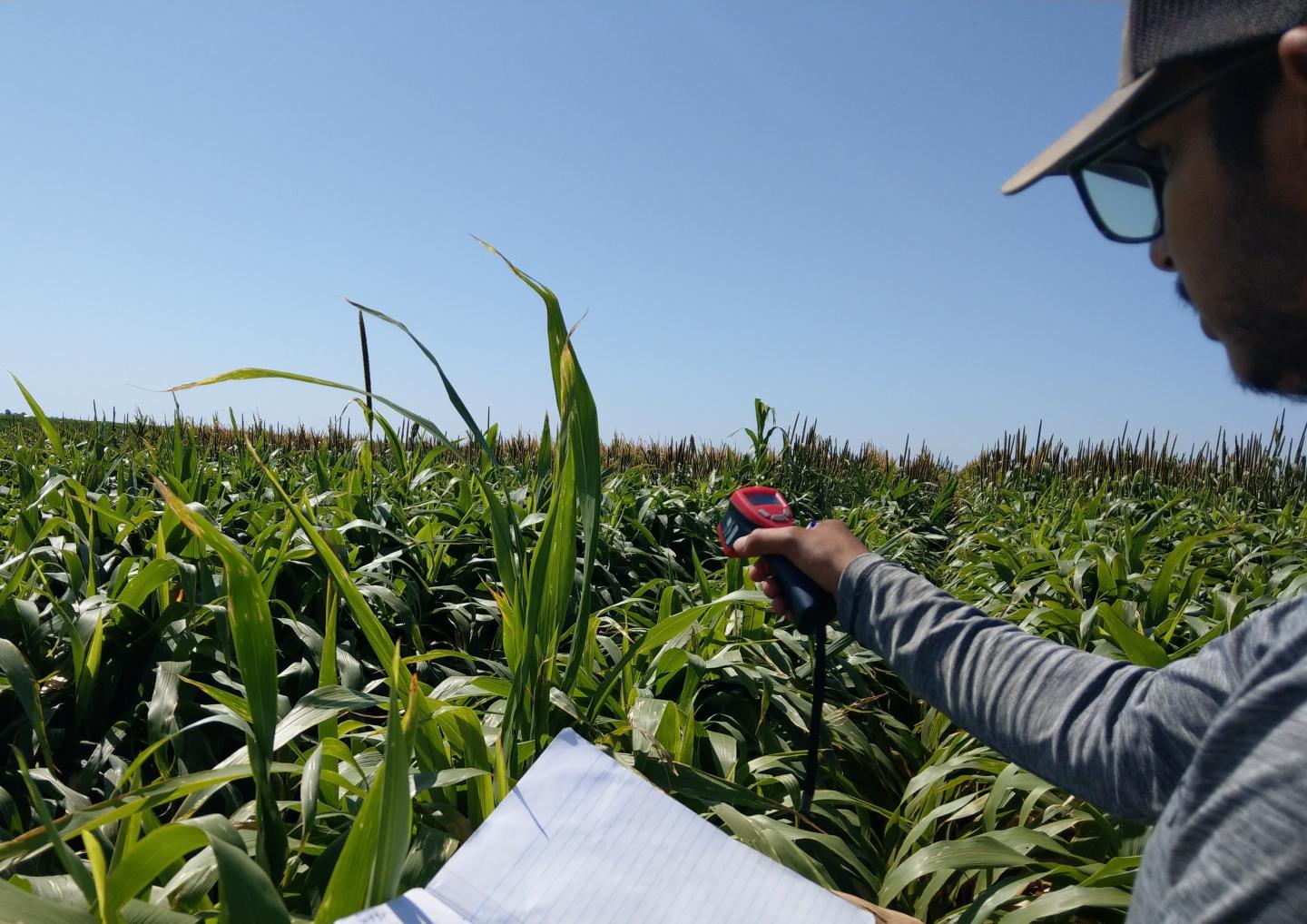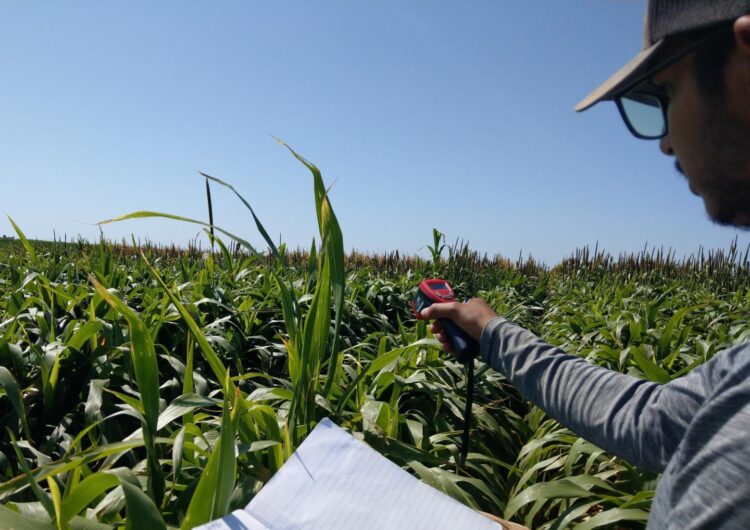
Credit: Sukhbir Singh
In the semi-arid Texas High Plains, growers and producers are concerned about the sustainability of beef and dairy industries, which rely heavily on irrigated corn for feed-grain and silage. A main source of irrigation–the Ogallala Aquifer–is declining rapidly. The aquifer’s decline emphasizes the need for producers and growers to find alternative, water-efficient forage crops for sustainable beef and dairy production in the region.
In a new study published in Crop Science, researchers from Texas Tech University investigated the potential of forage sorghum and pearl millet as alternatives to corn for forage production. The 2-year study evaluated the physiological responses of multiple varieties of all three crops under various irrigation regimes, including dryland. The team collected data on leaf water potential, stomatal conductance, and canopy temperature. They also studied the influence of these responses on biomass production and nutritive values.
The study reported that sorghum showed better physiological responses and produced greater biomass under water-stress conditions compared to pearl millet and corn. Though the nutritive value of sorghum was lower than corn, sorghum could provide growers with an alternative to produce higher biomass with less water. As a management option, forage sorghum could be mixed with high nutrition supplements to achieve desirable feed quality and increase profitability.
###
Adapted from Bhattarai, B., Singh, S., West, C.P., Ritchie, G.L. and Trostle, C.L. (2020), Effect of deficit irrigation on physiology and forage yield of forage sorghum, pearl millet, and corn.
Media Contact
Rachel Schutte
[email protected]
Related Journal Article
http://dx.





